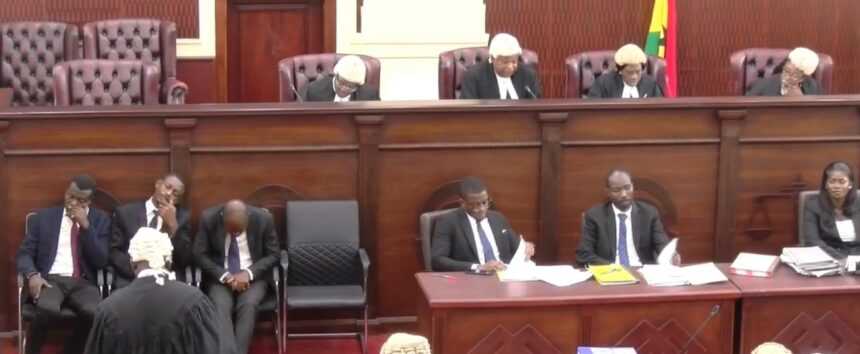adverts
A seven-member panel of the Supreme Court, chaired by Justice Lovelace Avril Johnson, has unanimously dismissed a petition filed by broadcast journalist and lawyer Richard Delay Sky, challenging the constitutionality of the Human Sexual Rights and Family Values Bill.
Richard Dela Sky had sought a declaration that the controversial bill, which aims to criminalise activities related to LGBTQI advocacy, was unconstitutional and therefore null and void.
However, the court upheld the legislative process, rejecting his petition.
adverts
The bill, if enacted, would impose strict penalties on individuals who promote, fund, or provide indirect support for LGBTQI-related activities. While proponents argue the bill is necessary to safeguard Ghanaian cultural and family values against foreign ideologies, critics—including human rights organisations—describe it as a violation of fundamental rights such as freedom of expression, association, and equality under the law.
The Supreme Court also dismissed a related petition by equality and inclusion advocate Amanda Odoi, who, alongside Dela Sky, argued that Parliament had failed to meet the constitutional quorum requirements outlined in Articles 102 and 104 during the legislative process.
Justice Johnson, delivering the court’s ruling, clarified that since the bill had not yet been enacted into law, it could not be subject to judicial review of its constitutionality.
“Until a bill receives presidential assent, it does not constitute an enactment that can be subjected to constitutional scrutiny,” she stated.
The Human Sexual Rights and Family Values Bill has sparked widespread national and international debate. Supporters view it as essential for preserving Ghana’s moral and cultural framework, while opponents see it as a direct threat to human rights protections enshrined in Ghana’s Constitution and international commitments.
This decision by the Supreme Court has effectively removed a major legal obstacle to the bill’s progress, but the broader societal and political discourse around it is far from over.


